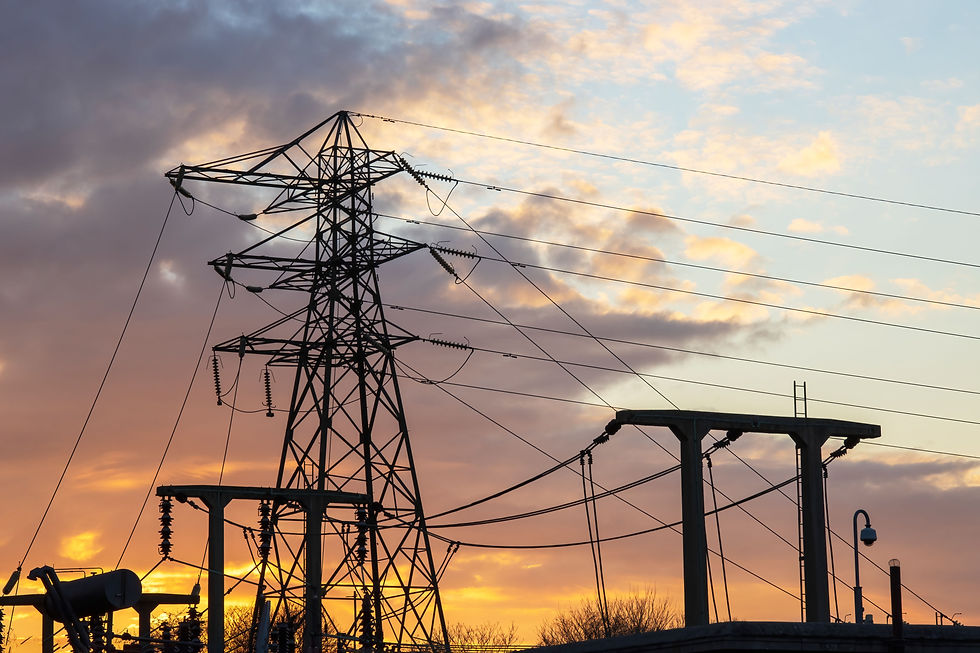What does the change in Winter Fuel Allowance mean for you?
- Connie Duxbury

- Sep 17, 2024
- 5 min read
Recently, the Government announced significant changes to the Winter Fuel Allowance, which will now be restricted to only those pensioners who receive means-tested benefits, such as Pension Credit, Universal Credit, or income-related Employment and Support Allowance (ESA). This marks a departure from the previous system where all pensioners over a certain age were eligible for the payment. The changes will come into effect for the 2024/25 winter period.

What is the Winter Fuel Allowance?
It is the payment of either £200 or £300 made in the winter months: November or December. As a result of the Government aiming to reduce budgetary pressures, the number of pensioners receiving this will go from 11.4 to 1.5 million next winter.
However, it will still be paid to all pensioners who claim Pension Credit to increase their income. If you are means-tested for other benefits, likely, you will still receive this payment. An estimated 880,000 households eligible for Pension Credit do not currently claim it, which would also disqualify them from the winter fuel payment under the new rules
The UK government has launched campaigns to raise awareness about Pension Credit to help ensure that more low-income pensioners receive this vital support. However, many advocacy groups, including Age UK, argue that the changes could lead to increased hardship for vulnerable pensioners during the winter months.
However, you must check the GOV UK website when new advice is published to get the most up-to-date news about the Government’s plans relating to the cuts, as policies can adapt and change after publication.
What happens to those not eligible to claim the allowance?
The Prime Minister has claimed that the impact on those who have lost their allowance will be alleviated by the real-terms rise in pensions by 4% in April (the start of the new tax year),
which will increase the full state pension by £460 a year. However, as other media outlets have pointed out, this rise’s effects differ significantly from the scrapped winter fuel allowance due to the different payment timings and purposes. For example, pension payments are made throughout the year, and their intention is not to cover heating costs. This specific payment is a regular payment based on your previous national insurance contribution, so it is a retirement income. Unlike the winter fuel payments, it is not allocated for a specific purpose.
The questions raised by how the allowance would operate are affected by the changing nature of the eligibility criteria.
What will happen if there is a change in circumstance for a person, which then makes them eligible?
How will this payment exception be reinforced? For example, will more people be employed to oversee the exceptions regarding who gets the allowance, and will it affect actual human resources regarding where people are allocated?
Is there anything the government can do practically to alleviate the effects of winter on pensioners in addition to the payments?
While questions one and two seem challenging to answer, the last can be answered quickly.
Here are some manifesto commitments that will affect pensioners' heating. Also, remember that the initial payment idea being scrapped was not part of the manifesto and became a policy once devised by the government. This means that it is totally feasible for the Labour government to then change their mind or adapt the policy/ create a new policy now—which has not yet been announced.
General manifesto points relating to heating
As a broad overview, Labour are looking to transition to clean energy. As a by-product, attempts to reduce heating costs and decarbonise homes are also included in the agenda. Therefore, to reduce reliance on gas, they are promoting electric heating options like heat pumps, as acknowledged by the Carbon Brief and Labour List.
Specific policies include:
Backing an additional £6.6bn investment in efficient domestic heating
A desire to introduce a Warm Homes Plan
These investments, for point one, would supplement the Conservative Government's pre-existing investments to ‘upgrade’ 5 million homes to reduce domestic heating bills.
As a bit of background on the Warm Homes Plan, it will make it possible for families struggling to get low-interest loans or grants depending on their financial circumstances. This money can be used for solar panels, batteries, and low-carbon heating to cut bills.
Whilst it is going to differ regionally depending on the houses, devolved governments, or local authorities, the aim is to have equal participation for every constituency in this plan. However, it has to be said that this is on a smaller scale than previously promised by the Labour Government as part of the now defunct £28bn climate pledge.
Ways to save energy
Visit the government website for home improvement ideas that could make your property cheaper to heat and keep it warm.
Cold weather payments
This is a £25 payment for every seven days of very cold weather between November and March. Visit the UK Government website for more information
Croydon Healthy Homes
You can get more advice and support through the Council’s free energy advice service, Croydon Healthy Homes. The service includes:
drop in sessions
online workshops
help to apply for fully funded home energy improvements available to homeowners and private renters in Croydon
Domestic energy advice
Information about local and regional schemes to help you reduce your fuel bills and improve the energy efficiency of your home.
Energy advice events
Information about local events where you get advice about local schemes to help you reduce your fuel bills and improve the energy efficiency of your home.
Energy Savings Trust
For other independent and impartial advice to help you reduce energy consumption in your home and cut your energy bills, visit the Energy Savings Trust website.
Energy supplier grants
If you are falling into debt, your energy supplier may offer grants to help you. Visit one of the energy suppliers below to find out if you are eligible.
Warm Home Discount
This is a £140 discount on your energy bills, if you are classified as being on ‘low income’ or are in a ‘core group’ of people receiving Pension Credit. This scheme has been extended until March 2026. Visit the UK Government website for more information
Water bills
You may be eligible to apply for the WaterSure scheme if you receive certain benefits, have a high water usage and use a meter. Visit the Citizens Advice website for more information and contact your supplier to check your eligibility.
Winter fuel payment
This is a £100 to £300 payment for older people born on or before 5 October 1954. Visit the UK Government website for more information about eligibility and how you can make a claim.
Welfare rights and managing debt
For support or information on welfare rights or managing debt, visit:
Other help with heating bills
You could also get:
a Cold Weather Payment - if you get certain benefits and the temperature drops to zero degrees Celsius or below for 7 days in a row
the Warm Home Discount - this is a £150 discount on your bills if you get Pension Credit or live in a low-income household
help from the Household Support Fund, if you’re eligible under your local council’s rules - check on your local council’s website















Comments